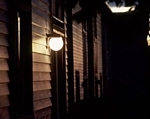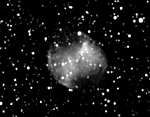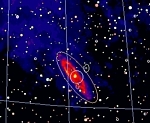Turn off the lights! [????????]
Whether you observe from the patio of your house, or from the solitude of the desert, do not forget to keep any light that prevents the observation from developing well, turned off or out of sight. It is very important that the human eye first adapts to the darkness (for a period of about 20 minutes), and after that there are no lights again that ruin the sensitivity to darkness (only red lights are allowed).
Prepare an itinerary [????????]
Just as important as a checklist is an observation itinerary both at home and out of town. This implies optimizing time, since a chronological order of observation implies being able to see objects that are about to hide on the horizon, while waiting for other, perhaps more interesting ones to appear. This is especially useful when there are events at a fixed time (e.g. occultation of a star, an eclipse, etc.).
Make records and comparisons [????????]
In all observations it is important to make written records; helps for future reference, provides a database for a specific activity (e.g. observations of double stars) and in certain cases, allows identification of an object that does not officially appear on celestial charts (with which comparisons must be made); In that case, we are likely looking at a satellite, a known asteroid, or another similar object; although, if we're lucky, you might have discovered a new asteroid or comet!
Avoid factors that impair observation [????????]
It is a basic rule to be prepared for generally long observations; This implies avoiding harmful factors that in one way or another affect the observation. Wear warm clothing for the cold, otherwise your ability to move is affected and you will have problems handling the instruments; have hot food and drinks on hand, preferably coffee and cookies, as it keeps you warm and doesn't leave your fingers greasy; Avoid alcohol and nicotine, as these reduce the flow of oxygen to the eyes, affecting the ability to appreciate optical details.

